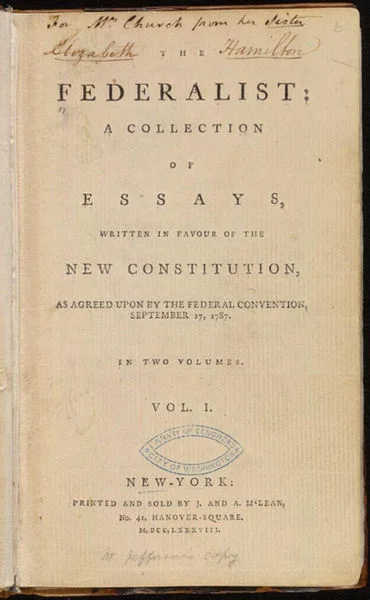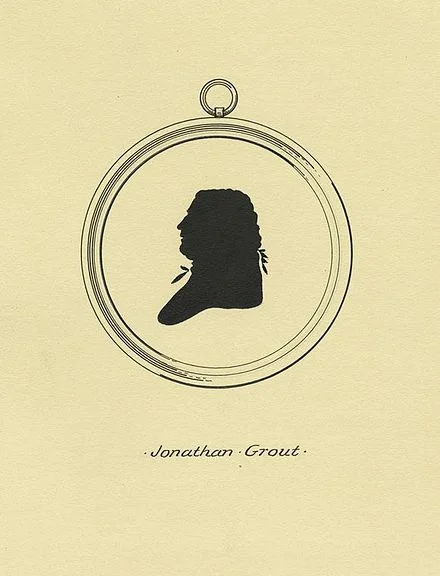Germany vs The Articles of Confederation - Federalist # 19 - James Madison
Writing articles for Founder of the Day, I have prided myself on make the articles short, simple, fun and easy to understand.
Recently, I have received some feedback that the Federalist Fridays articles are a bit more difficult. With that in mind, I am taking a new approach this week. Instead of trying to ‘get the message across,’ I am treating it like my normal articles…just telling the story as I understand it.
It might be a bit of a transition, but please feel free to let me know if you enjoy this new style and any other feedback is always appreciated. Thank you!!!
Federalist #19
James Madison
December 8, 1787
The Same Subject Continued
In Federalist #19 James Madison returns with his usual, boring (I mean studious) tone. He continues his lecture on why the Articles of Confederation are an inferior form of Government.
Madison does not actually reference the articles in this paper.
Instead, he gives us an in depth look at the Kingdom of Germany and points out the many flaws which ale it. The similarity between Germany’s Government and the Articles are assumed to be apparent to the reader.
Germany
Madison’s main point in Paper #19 is that the German Government of 1787 was extremely unstable.
Due to the Emperor's limited power, the separate German States (known as Kingdoms) were constantly at odds with each other and often engaged in civil wars. This led to struggles for power and even allowed for the influence of neighboring nations to come into play.
It should be noted that Germany of 1787 was extremely different than that of today, or even 100 years ago. The separate Kingdoms very much saw themselves as independent bodies, with the ‘Empire’ being merely an alliance.
Comparison
The parallel between the German Empire and the Articles of Confederation is striking.
Madison’s contemporaries would have been all-too-familiar with the goings on in Germany. The arguments he presents would have made tremendous sense, though they would not be without debate.
Most of the Founders, at the time, considered themselves citizens of their State, not the United States (this would not begin to change until after the Civil War, when the Union became more important than the State).
These feelings were especially important to the Anti-Federalists, who saw the Constitution as a gross assumption of power.
Anti-Federalist Argument
The Anti-Federalists would have several arguments against Federalist #19.
Firstly, they would have less concern about the influence of neighboring nations, as the British and Spanish colonies were not as immediate a threat as the countries on the European continent.
Furthermore, they would have noted the success of the Swiss Cantons. Madison brushes past this in one line where he admits, “it is sometimes cited as an instance of the stability of such institutions,” but simply claims Switzerland, “scarcely amounts to a confederacy.”
He essentially bypasses any discussion of one of the Anti-Federalists’ main contemporary models of a successful confederacy.
Conclusion
All in all, Federalist #19 is James Madison giving the reader a lesson in the weaknesses of the German Government.
He does not go into much detail regarding how these weaknesses are comparable to the Articles of Confederation. Instead, he leaves it up to the reader to interpret it for themselves.
This Paper is a bit more ‘theory of government’ than ‘why we need to ratify the Constitution.’ This is an interesting way for him to sway his opponents, allowing them to make the comparison (and see the flaws) for themselves.
Do you want to read about other Founders who supported ratification of the Constitution?
Great!
Try these articles on Tench Coxe and William Bingham.
Want to read a great book about the Constitutional Convention?
Nice!
‘Plain, Honest Men’ is a book I’ve recommended on this site several times before. If you haven’t read it, now is the time. Pick up a copy through the Amazon affiliate link below (you’ll support this site, but don’t worry, Amazon pays me while your price stays the same).
Want to get fun American Revolution articles straight to your inbox every morning?
Smart!
Subscribe to my email list here.






